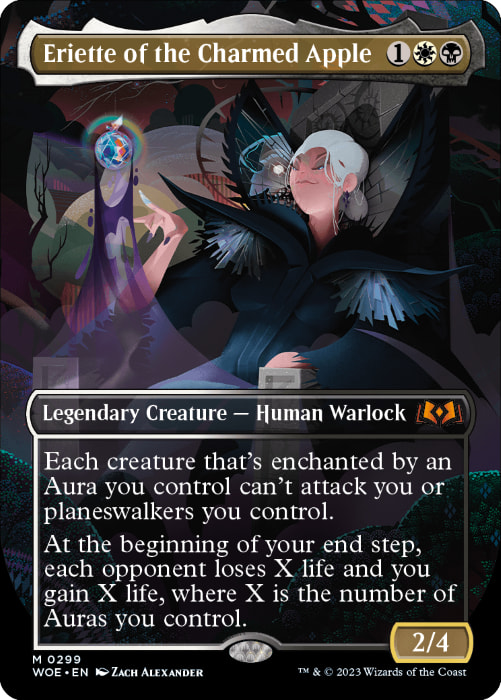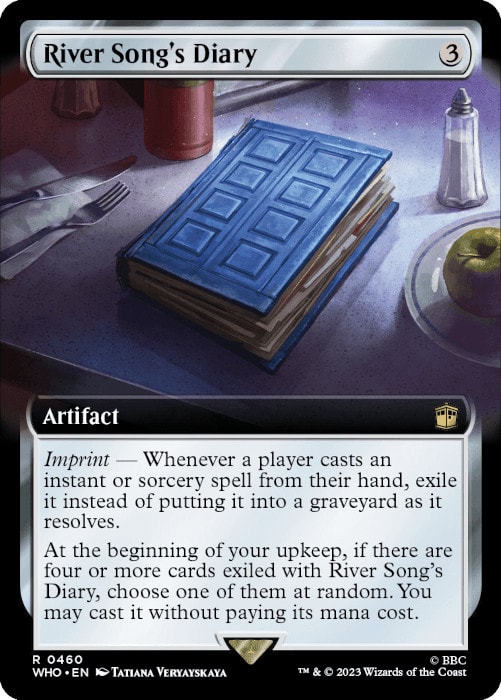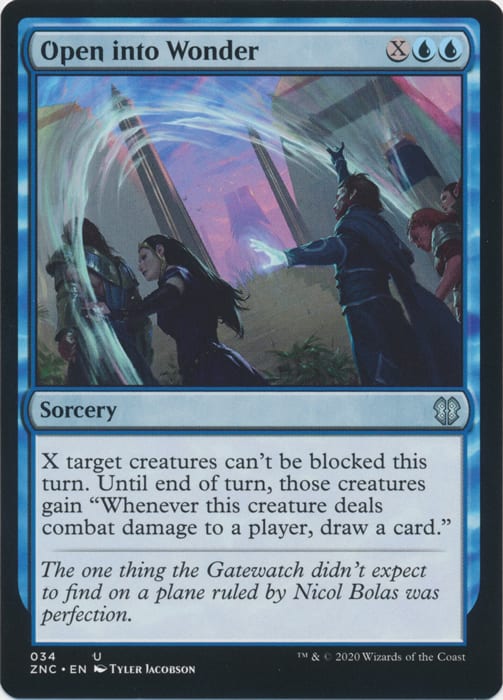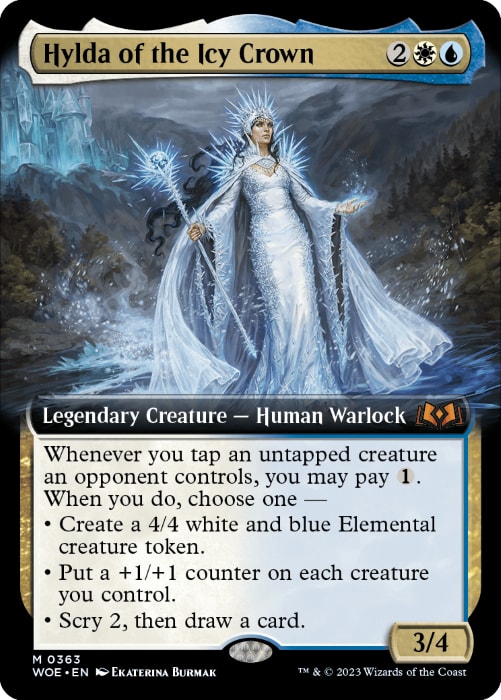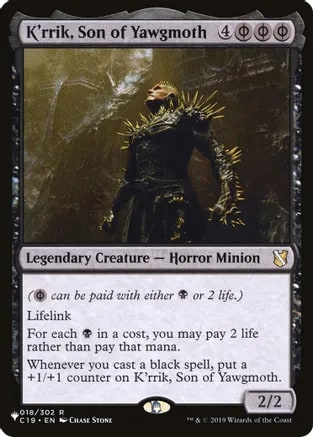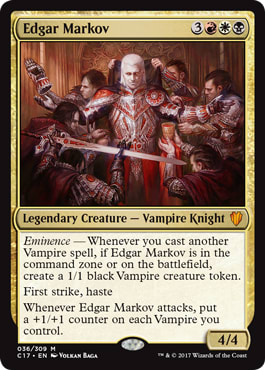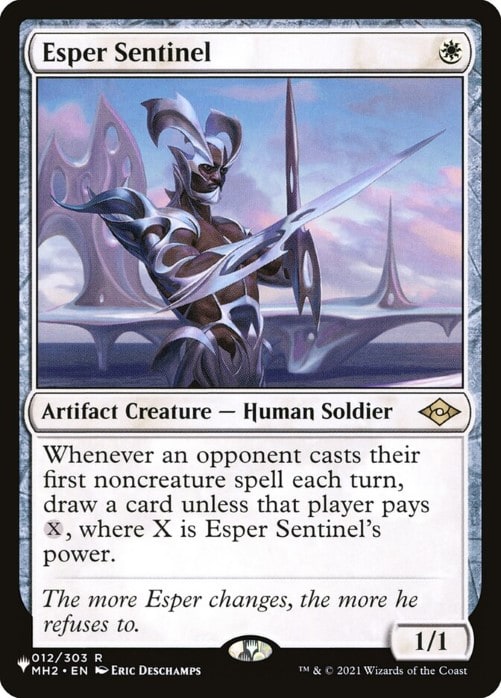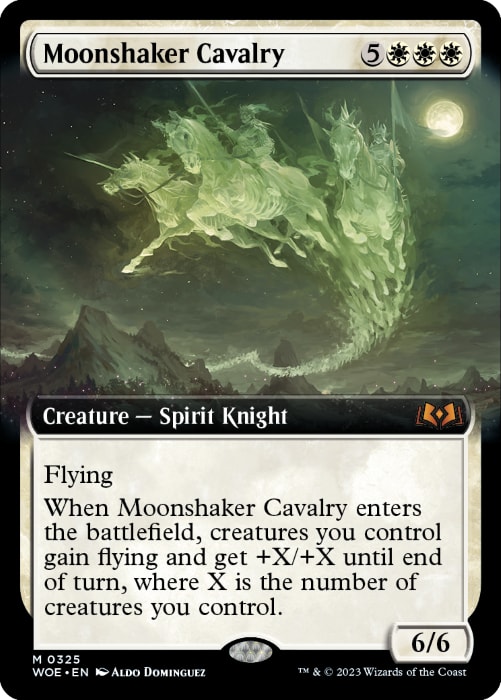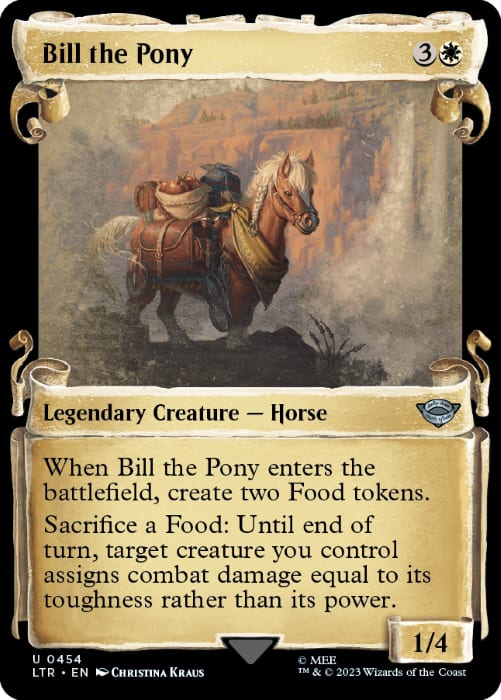"Wizards of the Coast is dropping a new set of Magic cards!"
That's the sort of headline that used to apply a few times a year, but these days we've been seeing more and more new content flowing into the Commander card pool. New cards are great, but with every new set, deck-builders face the challenge of trying to figure out which cards are worth playing and building decks around.
If you're new to Magic: The Gathering, new to Commander, or just don't feel comfortable evaluating new cards, today I'd like to share what I look for when a new set drops.
Ten Things to Look for When Evaluating Cards for Commander
None of these criteria are foolproof, but if you see a new card and it hits upon a few of the things on this list, it's definitely worth a look.
These are in no particular order, but I've numbered them anyway since we're counting to 10. I'll try to use examples from recent sets, but I don't mean to suggest that these cards were "chase" cards that everyone was buying up like crazy.
Check out each set of cards as you read and see if you can guess what I'm driving at with my examples!
1. Cards that Say "Each Opponent"
Commander is a multiplayer format, and the fact that you have multiple opponents makes cards with the words "each opponent" worth a second look. Not every new legendary creature that affects all your tablemates is going to be the next Purphoros, God of the Forge, but you should look for those two words. If "draw a card" is the most important three-word combination in all Magic: The Gathering, I would humbly suggest that "each opponent" might just be one of the most important two-word combinations in Commander.
2. Cards with Replayability
Commander games can sometimes go long, the ability to get additional value out of a card is incredibly important. A card that gets played once and you never see again might be great, but if it can come back for a second appearance it's even better. Flashback lets you play spells out of your graveyard. Imprint and Cipher let you exile a spell and cast it again later if you meet the right criteria. Rebound lets you cast a spell again on your next turn's upkeep. Planeswalkers and Sagas can give you value across multiple turns. As new sets come out you may see entirely new mechanics that let you get additional value out of a single card. This extra value is good in any format, but incredibly important in Commander, where casual games can stretch out for hours sometimes.
3. Cards with Scalability
Another way to evaluate a card is to look at whether it can be used at different stages of the game. Can you play this card in the early game for a smaller impact or late in the game for a much bigger impact? This question of scalability is easily applied to "X" spells. Stonecoil Serpent can be an early Game 1/1 and it can also be a big late game threat. Open into Wonder can let you swing for a little damage and draw a few cards in the early game, or it can be a game ender later on if you've got a big enough board. There are also keywords like Kicker and Overload that let a spell scale up for a bigger impact later in the game when you have more mana available to you.
4. Versatile Cards
Modal spells are spells that let you choose from a list of options. Some modal spells give you one choice, while others let you choose one or more options. Some even let you choose the same mode more than once. Charms and other modal spells increase the chances that you will be able to draw into exactly what you need when you need it. A commander with a modal ability gives you that flexibility right out of the command zone. You often pay more to have access to all these options, but the flexibility that a modal spell or trigger gives you is often worth the extra cost.
5. Unique Cards
It might require a pretty deep knowledge of Magic: The Gathering, but it's always worth asking if a new card or commander is doing something that has never been done before. With thousands upon thousands of cards and countless legendary creatures, it's not an easy question to answer. Is this card giving us something new, or something new for its color identity? Have we ever had a legendary creature that lets us to pay life instead of mana? Have we ever had a commander who can tap to end the turn? Have we ever had a zero-mana commander? Being unique, or even somewhat unique, doesn't make a card powerful, but it should absolutely catch your attention. Take a closer look at these cards. Sometimes Wizards of the Coast makes mistakes and prints cards that are way too powerful. They usually don't make that same mistake again.
6. Upgrades in Power
Occasionally, we see a new card or a new commander that represents a step up in power compared to everything that has come before it. A "strict upgrade" is a card that's undeniably better than other cards that do the same thing. If a new card is the next step in the evolution of a type of card or an archetype, it is worth paying attention to. The gap between the new card and the cards that came before it should be a narrow one, but occasionally, you'll come across a card that is leaps and bounds beyond the cards that came before it. When there's no good reason to play anything other than the new card, outside of flavor and personal preference, it's a big deal and is something to pay attention to.
7. Cards that Break the Color Pie
When Magic: The Gathering was first developed, the ![]()
![]()
![]()
![]()
![]() color pie was designed to give each color a unique flavor. Each color could do things that other colors might struggle with. When a new card comes out that "breaks" the color pie and provides functionality that isn't commonly found in its colors, it is worth paying attention to. This is especially true when that functionality is something essential to the game, like drawing cards, exiling troublesome permanents, wiping the board, and so on.
color pie was designed to give each color a unique flavor. Each color could do things that other colors might struggle with. When a new card comes out that "breaks" the color pie and provides functionality that isn't commonly found in its colors, it is worth paying attention to. This is especially true when that functionality is something essential to the game, like drawing cards, exiling troublesome permanents, wiping the board, and so on.
8. Cards with Combo Potential
For every playgroup that eschews combo, there are plenty more that enjoy diving into the exciting back-and-forth that comes with these potentially game-ending plays. If a new card enables an existing combo or especially if it creates a new one, it is worth paying attention to. The combo doesn't even need to win the game. It will still probably see play, and the more compact the combo is, the more likely it will start showing up in games.
9. Win Conditions
Eventually the game's got to end, right? If a card is likely to be able to win you the game or set you up for a game-winning turn, it's worth picking up. This might seem obvious, but it would be an oversight not to include this category. As of this writing, there are over 25,000 cards in the pool of cards legal to play in Commander. A small percentage of those cards see frequent play and a much, much smaller percentage are powerful enough to close out a game. You might need the right boardstate or the right situation for the card to work, but the goal of the game - beyond just having fun - is to win.
10. Cards that Spark Joy
This last item is incredibly important, but is also hard to quantify. If you come across a card that sparks joy in your heart... do yourself a favor and play it in some of your decks or build a deck around it. Everyone has different things they love and that amuse them.
When I wrote up my "Bill the Murder Pony" column, I enjoyed exploring the idea of how you might build a Voltron Bill the Pony deck.
When I heard that my Bill the Murder Pony column had attracted lots of views, probably in part because of its funny title, it felt pretty darn good.
When I watched a friend play the deck in our Thursday night Tabletop Simulator group and heard everyone laugh when Bill swung in and managed to kill someone with commander damage out of nowhere, it made me really happy.
I'm into Tolkien, and I'm not particularly into horses or ponies, but Bill was a great find for me out of The Lord of The Rings: Tales of Middle Earth set and I'm really glad he caught my eye. If a card catches your eye, puts a smile on your face, or sparks joy in your heart - give it a chance. It's OK if the card is underpowered and you're just running it for the art, the funny name, or some bad joke you get to make when you play it.
For years I used to play the land Hammerheim so I could inject a little humor into my games by saying "Stop!" in the middle of my turn to get everyone's attention, and then slap the land down and say "Hammerheim..." My MC Hammer references would sometimes get lost on younger players, but it was still worth it.
















